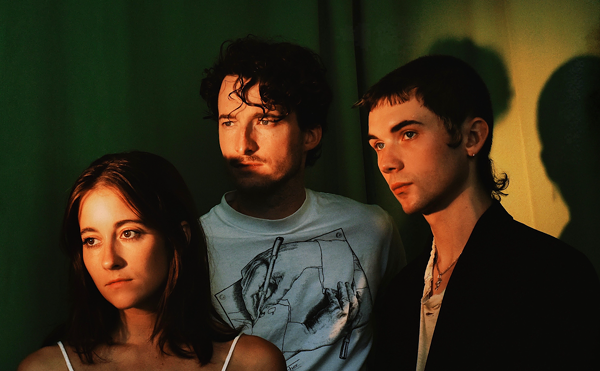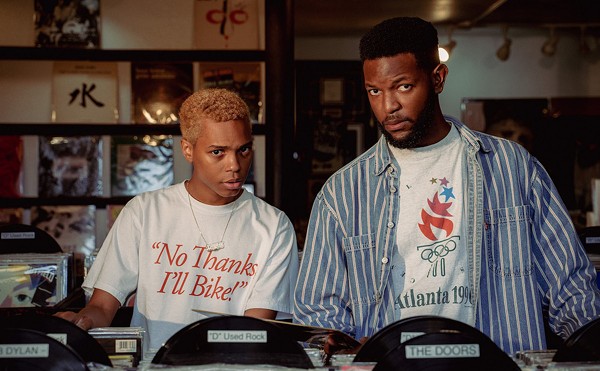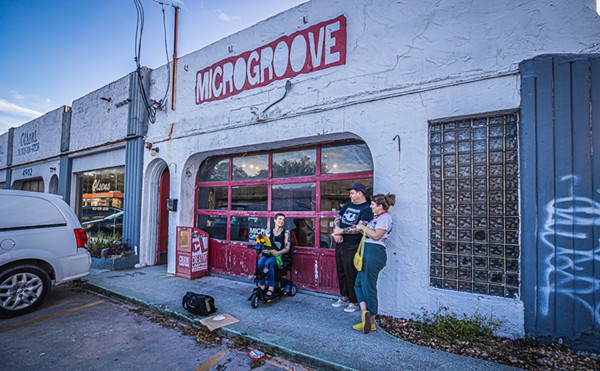Charles Mingus Sextet with Eric Dolphy: Cornell 1964
Charles Mingus
(Blue Note)
With jazz in the commercial dumper for a very long time, major-label affiliates like Blue Note increasingly hope for an important historical find like this Mingus recording for the big score that'll pretty up the balance sheet. That's right: While a new release from a contemporary talent might sell 5,000-10,000 units (acts on the jazz margins like Norah Jones excluded), these unearthed bombshells can generate big numbers. Thelonious Monk Quartet with John Coltrane at Carnegie Hall (also Blue Note), released in '05, sold an astounding quarter-million copies.
So there's a lot riding on this two-disc, two-hour-plus concert document by Mingus, the mercurial composer/bassist who died in 1979 at age 56. Whereas the Monk/Coltrane disc showcased tight readings of nine classic Monk songs, Cornell 1964 is apt to provide a bigger listening challenge. Mingus performances were rambling, stream-of-consciousness affairs that emphasized on-the-bandstand discovery and experimentation within the bassist's pliable sense of structure. Two selections — "Meditations" and "Fables of Faubus" — run about a half an hour, and several others range from 10-15 minutes.
Those willing to be engulfed by this music — and it's not easy — will be well rewarded. Mingus is surrounded by what's regarded as one of his best, albeit short-lived, bands: longtime drummer Dannie Richmond, pianist Jaki Byard, trumpeter Johnny Coles, tenor saxophonist Clifford Jordan and broke-the-mold reed man Eric Dolphy, whose work on bass clarinet, flute and alto sax was all oblique angles and shards of sound.
The music is forcefully played and often garrulous, propelled by Mingus' brawny bass work. Throughout the concert, he verbally cajoles his musicians and engages in playful repartee with the audience. As expected from Mingus, the music is deeply infused with the blues and a reverence for jazz history. Byard's concert-opening solo piece, "ATFW You," offers a four-and-a-half minute tour of early jazz piano. That's followed by Mingus' solo bass workout, an affectionate reading of Ellington's "Sophisticated Lady." The first set ends with a reverent, romping version of Billy Strayhorn's "Take the 'A' Train."
Elsewhere, it gets more demanding. Rhythms reshape; the music meanders into what seem like dead ends, only to be rescued by a galvanic horn-section riff or inspired solo. Unlike most small groups of the era, Mingus' bands didn't just play the melody and take turns soloing; instead, the band peppered the improvisations with loosely arranged ensemble licks — which energizes the long pieces and adds the welcome element of surprise. 4 stars —Eric Snider
Eat Me, Drink Me
Marilyn Manson
(Nothing/Interscope)
He's always made more interesting headlines than music, and Eat Me, Drink Me is no exception. Manson (Brian Warner, if you're the IRS) recorded and produced the album in stripped-down fashion with Tim Skold, a Swedish glam-rocker and multi-instrumentalist who plays lead guitar on the schlockingly-titled "Rape the World" tour. Skold's guitar is consistently the best and most melodic thing on the album — he builds a tension to rival the grotesqueries of the lyrics, which is no mean feat. Otherwise the album boasts occasional wordplay ("the hole is where the heart is") and such considerate advice as "watch out your face/ my sperm's cold as ice." The title track is a reference not to Christ but to Armin Meiwes, the German cannibal fetishist. Eat Me, Drink Me may be a tighter album than we've come to expect — but it's not exactly a new direction for the 38-year-old. Pacing here is nonexistent (each song falls into the "funereal stomp" category), and the overriding emotion ("pain is love," as Ja Rule likes to say) gets exhausting after about 10 minutes. (Marilyn Manson will perform with Slayer, Fri., July 27 at Ford Amphitheatre, Tampa.) 1.5 stars —Ted Scheinman
After Hours
Raul Malo
(New Door/Universal)
Former Mavericks frontman Raul Malo might just be the best crooner in the music biz. Raised in Miami by Cuban parents, he's that rare vocalist who can interpret jazz and country classics with equal aplomb. Boasting a rich, round voice that reflects myriad emotions, Malo shines here on a collection of mostly vintage honky-tonk ballads. Each selection is a certified chestnut made popular by legendary singers Elvis Presley ("A Fool Such as I"), Tony Bennett ("Cold, Cold Heart") and Patsy Cline ("Crying Time.") But despite the imposing precedent, Malo manages to personalize each heartbreaking number. Over brushed drums, muted horns, soft piano, pedal steel and strings, his compelling, Latin-tinged voice brilliantly inhabits these songs that poignantly (albeit often with a sharp sense of humor) examine failed relationships. 4 stars —Wade Tatangelo
















